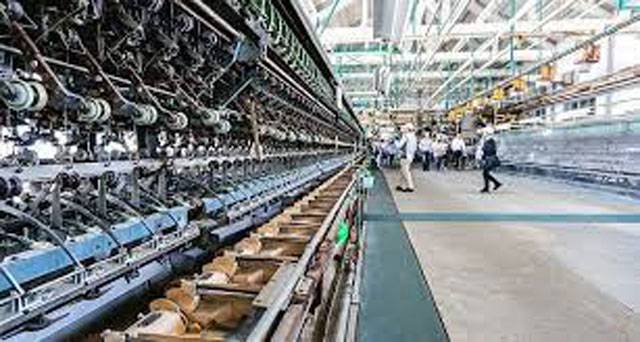ISLAMABAD-The Pakistan government must take prompt measures to bring down the production costs for industries to enable them to compete in the international market, experts said. Pakistani industrialists are currently having difficulty competing in the global market because of rapid increase in production costs. Tariq Tayyab, Additional Secretary of Pakistan Textile Exporters Association (PTEA), told WealthPK that the high cost of production is not good for our exports.
“The cost of production is a major factor, which makes an industry stand out among competitors in the world market,” he explained. Tariq said that high energy tariffs, shortage of fuel for machines, high rate of taxes, and lack of skilled labour are the main reasons behind the increase in the cost of production. He expressed concern that the reduction in industries’ contribution to Pakistan’s gross domestic product (GDP) is a worrying trend. “Manufacturing and production industries have the potential to significantly impact economic growth by reducing unemployment in the country. The government needs to take solid steps to make doing business easier,” he added. Dr Zubair, Operations Manager at Pakistan Dairy Association (PDA), said lack of research and development (R&D) is one of the major reasons behind the increase in the cost of production in any industry.
“Sometimes we have the resources, but we make poor decisions. A poor decision means poor practices of work execution,” he added. Dr Zubair said that R&D could help in the provision of valuable technologies, business models, and designs for the industry. “Implementation of modern techniques or work practices can increase production and also reduce its costs,” he added. Yousuf Shafiq, Vice-Chairman of Pakistan Tannery Association (South Zone), told WealthPK that both external and internal issues lead to an increase in cost of production. He said Pakistan’s leather industry is struggling in the international market due to challenges such as high inflation, political instability, increased power tariff, rising fuel costs , energy shortages, and lack of R&D.
“An effective strategy is needed to improve the performance of the industrial sector. The government should facilitate exporters by providing a level playing field to them in terms of business costs, particularly in utility pricing,” he suggested. Pakistan Industrial and Traders Associations Front (PIAF) Chairman Faheemur Rehman Saigol said Pakistan’s economy, particularly small and medium-sized enterprises (SMEs), is struggling to cope with the current economic crunch, and needs support. “Rather than providing subsidies or waivers, the industries are being burdened through rising production cost. The burden of surging oil prices in the international market is immediately transferred to consumers by the government, but the process of reducing prices is always very slow,” he noted.
Friday, November 22, 2024
Lowering production costs vital to making industry competitive

Imran Khan granted release in Toshakhana-II case
4:30 PM | November 22, 2024
'New low in Pakistan's politics: Khawaja Asif reacts to Bushra's fresh allegations
4:27 PM | November 22, 2024
Mohsin Naqvi announces Rs500mn for National Police Academy
3:31 PM | November 22, 2024
Iceland's Reykjanes Peninsula sees 7th volcanic eruption this year
3:26 PM | November 22, 2024
Digital nomadism redefines work and travel across the globe
3:25 PM | November 22, 2024
-
Lahore tops global pollution rankings as smog worsens, AQI reaches hazardous levels
-
Lahore tops global pollution rankings as smog worsens, AQI reaches hazardous levels
-
Hunger crisis to increase in South Sudan, warns UN
-
Pakistan’s judiciary champions climate justice at COP29 in Baku
-
Punjab struggles with persistent smog as Met Office forecast rainfall
-
Punjab residents face escalating smog crisis as pollution levels soar across country
UN Crossroads
November 22, 2024
Smog Trade-off
November 22, 2024
Undersiege Again
November 22, 2024
Land of Vigilantes
November 21, 2024
United in Genocide
November 21, 2024
Proposal to counter increasing cases of harassment
November 22, 2024
Critique of RFE/RL’s Coverage of the SCO Summit
November 22, 2024
Real vs Reel
November 22, 2024
Independent Supreme Court
November 21, 2024
Fat Loss Fantasy
November 21, 2024
ePaper - Nawaiwaqt
Nawaiwaqt Group | Copyright © 2024





